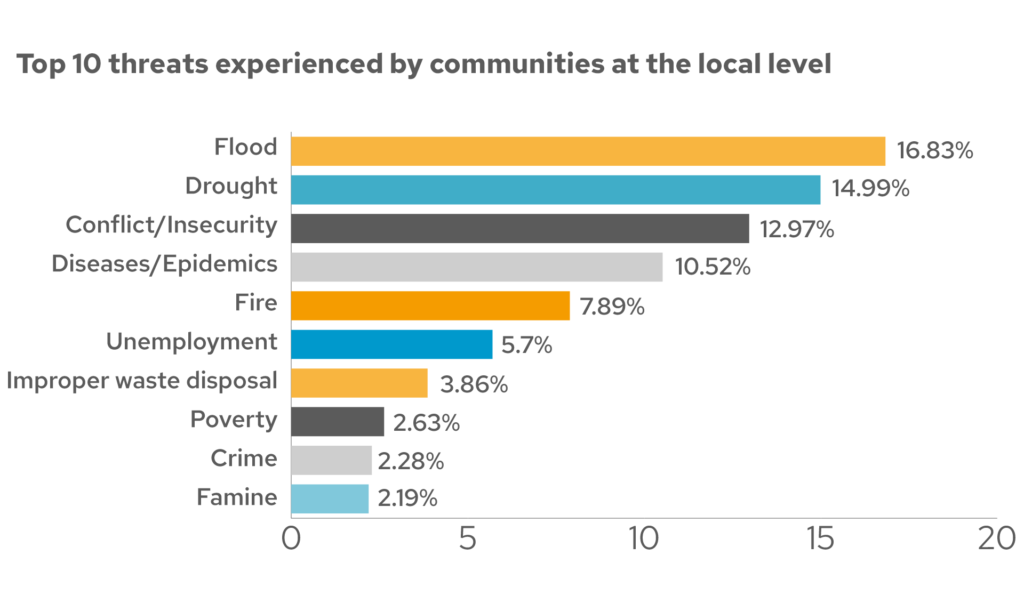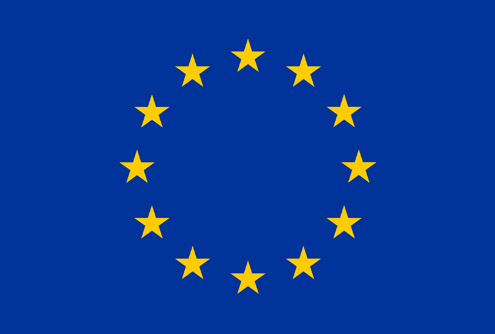VIEWS FROM THE FRONTLINE
Kenya
We’re working with 15 communities in Kenya to ensure that development is informed by the perspectives of people most at risk.
As part of our global Views from the Frontline programme we have surveyed community members, civil society organisations and government representatives across the country. Here we present our key findings, conclusions, activities and impact.
Random household surveys
Civil society surveys
Local government surveys
Key findings and conclusions at the national level
- Inclusion of communities in the assessment, planning, implementation and monitoring of risk reduction plans and activities is not being undertaken
- A lack of access to resources is increasing the risks faced by communities most at risk
- Development programmes of the government need to focus on reducing the risks of communities most at risk

Surveys undertaken in Kenya
Our Views from the Frontline surveys in Kenya were undertaken in 2019.
Who was surveyed?
We surveyed 2,266 random households, 157 civil society organisations, 151 local government representatives, and undertook 75 community consultations.
Risk locations prioritised
We prioritised four risk areas:
- Garissa
- Nairobi
- Mandera
- Kisumu
Communities surveyed
We surveyed people from 15 communities: Bulla Iftin, Raya, Ziwani, Billa Sheikh, Wape Wape, Rurii, Bins, Sisal, Bulla Dana, Duduble, Darweth, Ardaha Halow, North Nyakach, Manyatta Slum, Ahero.
“The government [needs] to be more prepared by investing in policies and infrastructure that enhance rapid response. The policies should address gaps in physical planning. ”
NAC representative, Kenya
Our impact
Activities undertaken in response to community-level findings and conclusions
- Awareness raising and training on disaster risk reduction and livelihoods to reduce the impacts of disaster risks
- Awareness raising and advocacy to key stakeholders for infrastructure upgrades to reduce disaster threats and risks to communities
- Development of a criteria framework for community engagement and support for the resilience building process with key stakeholders in the areas of disaster, waste management and environmental cleanliness
Impact of activities
- Enhanced community participation in project planning to ensure disaster risk reduction measures are taken into consideration and adherence to regulations to reduce disaster risks and threats
- Facilitated communities to understanding the need for participation in urban planning and integrated disaster risk reduction mechanisms
- Empowered communities and increased their knowledge to cope with existing disasters such as floods and drought, and also developed their lobbying skills while raising their voice with local authorities
- Communities will now be actively involved in waste management, including waste recycling processes to generating income
Our project partners in Kenya
Our Views from the Frontline programme is implemented by GNDR member organisations and partners in the country.
National coordinating organisation
- Anglican Development Services
Partner organisations
- Garissa Mediation Council
- Kujenga Maisha East Africa
- Action For Sustainable Change – Kenya
- TINADA Youth Organisation
View all data from Kenya
You can view all our Views from the Frontline survey data using our data dashboard. You can also learn more about our methodology for selecting at-risk areas and survey respondents.
Project funded by
European Union

Our Views from the Frontline project is funded by the European Union (EU). Content related to this project on our website was made possible by the support of the EU. All content is the sole responsibility of GNDR and does not necessarily reflect the views of the EU.
View their websitePhoto credit
Image by Nina Stock from Pixabay.